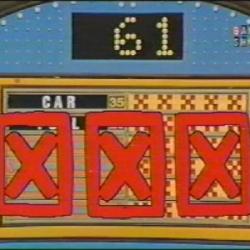Thank you, Eric N., for introducing me to Jon Talton’s Rogue Columnist. His rant on “What’s really wrong with newspapers” treats the newspaper biz the way a real reporter would if he didn’t already work for the newspaper biz. He follows the money.
I recommend the entire piece including — maybe even especially — those bits that bite the hand that feeds me personally. Talton’s critique of the way shareholder’s demands for ever-increasing profits have triumphed over the needs of readers and the demands of the craft are particularly apt when he applies them to the nation’s largest newspaper chain.
That chain signs my paycheck, so let’s refer to it here as “Grommett.” Notice I said “signs my paycheck” and not, “I work for Grommett.” That’s not how the job works or what it requires. If you think of yourself as working for Grommett or for any other publisher then you’re not going to do that job well. If you work for a newspaper, you work for the readers of that newspaper, and you serve them best by following the standards of the craft that exist independent of the particular policies or ideologies of any given publisher. Ideally, of course, there wouldn’t be any conflict between working for the readers and working for your publisher, but the newspaper biz is far from ideal.
Talton highlights one of my particular pet peeves:
The simple creed of “get a great story and put it in the newspaper (or online)” went away. For example, experienced police reporters went away — even though it’s clear that well-done cop stories draw readers. In their place was a 21-year-old taking dictation from a police public-affairs announcement.
The police briefs are one of the most-read stories every day on our paper’s Web site (almost rivaling the obits some days). Yet if you were to look at our site on Sunday or Monday morning, you’d find at most one or two items in that section. This is not because there is no crime on Saturday night. The criminals do not take weekends off, but the PIOs — the official police public information officers — do. So sometime this afternoon all those PIOs will return to their desks and send forth a volley of faxes and e-mails detailing the weekend’s events and thus our Tuesday police briefs will be overflowing with “news” that is two or three days old.
Receiving all those faxes and e-mails and rewriting them as news items is similar to the grade-school exercise of writing research reports based on a single entry from the World Book Encyclopedia. Working the police beat for our paper* would be excellent preparation for becoming a White House correspondent. Wait for the official to give the official word. The official will tell you what the news is and you can write it down. But be sure to use proper spelling and grammar — you’re a professional journalist, after all.
Talton’s critique is more diagnostic than prescriptive, so let me point somewhat in the direction of a cure: Let the sun shine. More transparency wouldn’t be a magic bullet, but it would help serve readers and it would help readers serve newspapers by providing more specific, and therefore more constructive, feedback. (The most common form of reader feedback, currently, is not reading newspapers. In response to this, newspapers blindly try to win them back, often by doing more of what drove them away to begin with.)
Here’s the sort of thing I have in mind: Blog the 4 o’clock budget meeting. You’ve likely seen such meetings portrayed on The Wire or Lou Grant or in All the President’s Men. These are the big daily meetings — usually around 4 p.m. for morning papers — where all the section editors meet to share what they’ve got for the next day’s paper and to figure out where it’s all going to go and what’s missing and how they’re going to fill in the gaps. This is, in other words, the meeting at which newspapers decide what they think is really important.
The decisions made at such meetings shape what is and isn’t deemed “news,” and that in turn shapes our civic and national discourse. What goes on A1 and what gets left out? Britney or Baghdad? Lacey or the local school board? Chondra or Khandahar? Judy Miller’s unsourced assertions or Walter Pincus’ painstakingly detailed debunking? Such decisions are made based on news judgment, on more logistical questions (is there good art?), and on hunches — sometimes accurate, sometimes baseless — about what the small group of gathered editors thinks readers are looking for.
That decision-making process should be transparent. The public has a right to see their sausage being made. Letting them see behind the curtain might make them better appreciate and understand the choices facing and the choices made by newspapers everyday. At the very least, such transparency would foster the idea that newspapers are in the business of providing the public access to information rather than in the business of selectively standing between them and what they want and need to know.
The highlights and lowlights and sidelights of every newspaper’s 4 o’clock budget meeting should be blogged.
The odds of this ever actually happening, anywhere, are huge. The valid reasons why this couldn’t happen are nonexistent.
– – – – – – – – – – – –
* I should note that we also have some excellent reporters who actually report while working our police beat — leaving the building and everything. But this is not required, expected or commended by Grommett.












